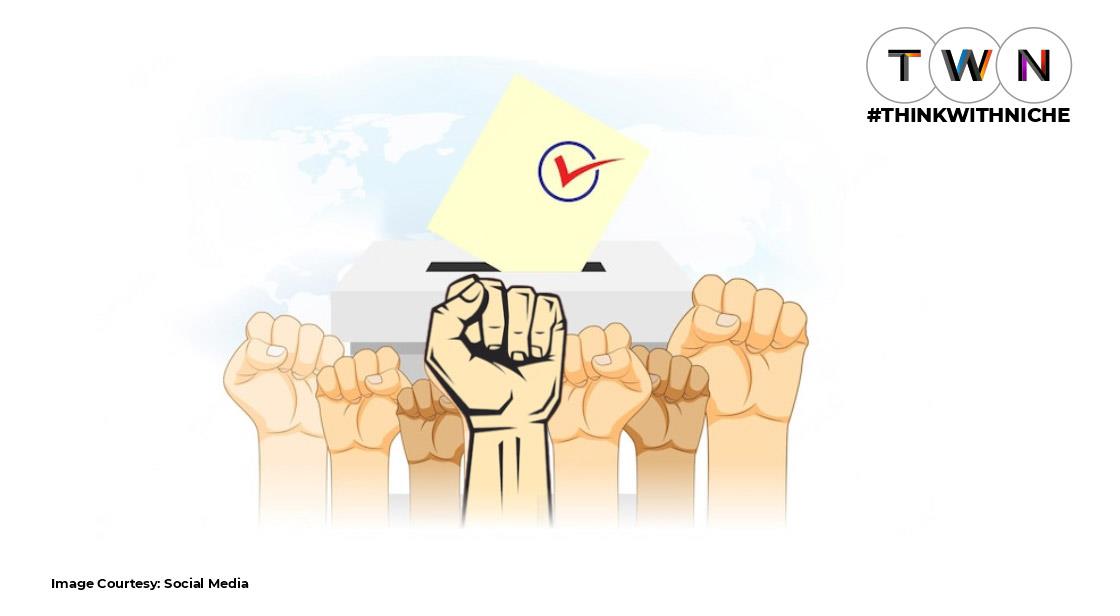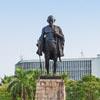International Day Of Democracy 2022: Promote Democratic Values Around The World

Blog Post
Every year on September 15, the International Day of Democracy is observed. Every year, the UN announces the theme of the day, and the day is celebrated in accordance with the theme. A country's democracy is determined by three factors: human rights, freedom, and free and fair elections. The Theme of International Day of Democracy 2021 was “strengthening democratic resilience in the face of future crises”.The theme of 2022 has not been announced yet.
The International Day of Democracy aims to promote and uphold democratic principles. A democracy is a government ruled by the people through representatives elected by the entire population. Democracy is inextricably linked to human rights, specifically the right to political and civil liberty, because democracy ensures equal participation by all members of society. The United Nations General Assembly established the International Day of Democracy in 2007. It is observed annually on September 15th.
#InternationalDayOfDemocracy
#WorldDemocracyDay
#HumanRights
#India
The International Day of Democracy, September 15, allows us to appreciate and celebrate our democratic society. People who live in free societies can take their freedoms for granted. Thank the people who helped to develop our governments, then seek out opportunities for promoting and protecting our nation's democracy.
Democracy refers to a state in which citizens have the right to take part in the decision-making process for their country, and not being controlled by a government. It is closely connected to human rights. Democracies can only be achieved when all citizens have the right to vote and participate in elections, regardless of race, gender, or any other factors that are related to inclusion or equality.
A safe and peaceful society is dependent on democracy. Without democracy, life can face incomprehensible challenges. People may take their freedoms as a given in a free society. Democracy is still a dream for many people in many parts of the world. Democracy Day this year will be about media freedom, democracy, peace, and achieving the Sustainable Development Goals.
HISTORY OF THE INTERNATIONAL DEMOCRACY DAY
In 2007, the United Nations General Assembly (UN) decided that September 15 would be recognized as the International Day of Democracy. This day was established to encourage government participation in maintaining open democracy among all UN Charter member countries. It also celebrates the system of values that democracy promotes and gives citizens the ability to make all aspects of their own lives decisions.
The UN's mission is to promote democratic societies all over the globe. It serves many purposes, including monitoring elections and strengthening democratic institutions.
The foundation of democracy is its citizens' ability to participate in the nation's decision-making process. This was true from the time democracy was founded in ancient Greece thousands of years ago. This is possible only if everyone can vote without regard to race, gender, or other factors. Inclusion and equality are essential for a democratic society's success. We have a representative democracy in America. This means that we elect representatives to represent us collectively to vote on decisions.
Reflection on your freedoms and the current state of democracy in the country will help you to identify the ways that you are involved in collective decision-making.
Aristotle wrote extensively about different types of government, including democracy, to help compare them and determine which one was most effective. These writings are influential in the development of modern democracy.
International Day provides an opportunity to reflect on the state of democracy worldwide. Each year, a particular theme is highlighted. Previous themes include stronger democracies and the importance of democracy for the 2030 Agenda for Sustainable Development. They also highlight the need to strengthen citizens' voices, dialogue and inclusion, accountability, political tolerance, and accountability.
How to observe the International Day of Democracy
Individuals and organizations can work together to review democracy status and organize events to increase awareness about democracy. These events can include discussions, social media campaigns, and leaflet distribution. The International Day of Democracy commemoration is based on a particular theme that has been suggested by the United Nations each year.
Also Read: International Youth Day 2022: Creating A World for All Age
International Day of Democracy Facts
-
Participation was the theme of International Day of Democracy 2019.
-
The four countries that don't claim to be democratic in the world are Burma (Saudi Arabia), Brunei (Brunei), and Vatican City.
-
Asia and Africa are home to the majority of non-democratic nations.
-
Only five countries have a population greater than 500,000 that didn't hold elections between 2000 and 2012. These countries are China, Eritrea (Qatar), Saudi Arabia, Saudi Arabia, and the United Arab Emirates.
-
New Zealand was the first country that allowed women to vote. They allowed women to vote before other countries, including the U.S.
WHY WE LOVE THE INTERNATIONAL DEMOCRACY DAY
-
It Gives Power To People
Because democracy gives citizens the right to speak up, it is powerful and allows them to make their own decisions. This form of government creates space for new economic theories and ultimately leads to innovation and improvement. -
It Is Based On The Concept Of Change
Democracies are built on the principle that citizens have the ability to change their circumstances when needed. If things are going well citizens can maintain the status quo. However, if things do not go according to plan, citizens have the power to remove the old and replace them with the new. -
It Is Based On Equality
The founding documents of democratic government placed a great emphasis on equality. One person, one vote -- no matter your status or who you are. This idea may not have been popular throughout the centuries but equal rights under the law are central to democratic governments.
"The liberty of a democracy is not safe if the people tolerated the growth of private power to a point where it becomes stronger than the democratic state itself. That in its essence is fascism: ownership of government by an individual, by a group, or any controlling private power"- Franklin D. Roosevelt
You May Like
EDITOR’S CHOICE












